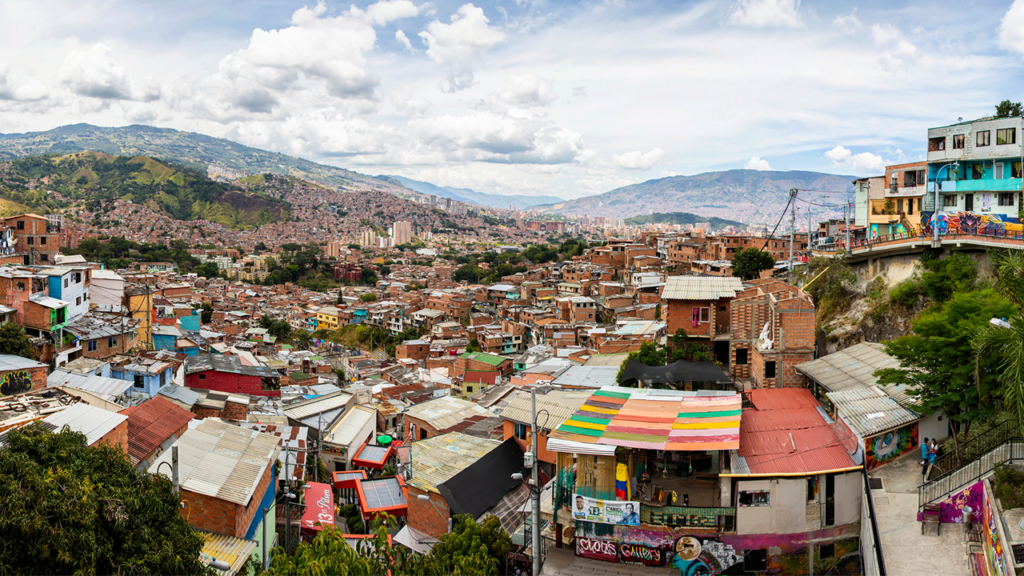ID 42645423 | Colombia © Vadym Rogov | Dreamstime.com
As Colombia’s real estate market enters 2024, it finds itself in a delicate balance between rising property prices and sluggish sales. The year has seen new home prices increase by 9.07%, a notable growth but a significant slowdown from 2023’s 12.40% rise. Despite this price surge, the market faces a set of challenges that paint a picture of a sector struggling with both supply and demand issues.
Rising Property Prices Amid Slower Sales
Throughout 2024, property prices in Colombia, especially in urban areas, have continued their upward trajectory. In cities like Bogotá, Barranquilla, and Cúcuta, home prices have climbed by as much as 24.63%. The price hikes have been most pronounced for apartments, which saw an average increase of 9.32%. However, this growth in prices has not been matched by an increase in sales. In fact, home sales plummeted by 11.9% in January 2025 compared to the previous year, signaling a slowdown in buyer activity despite the higher property costs.
The real estate market in Colombia remains split into two distinct segments: subsidized housing and non-subsidized housing. While sales of subsidized homes have seen slight improvements, non-subsidized properties have continued to face a decline. This divergence indicates that while some buyers can still access affordable homes through government programs, many others are being priced out of the market.
Construction Sector Faces Major Contraction
The construction sector, a critical driver of Colombia’s real estate market, is also showing signs of strain. According to reports, construction activity in Colombia decreased by a staggering 35.6% between December 2024 and February 2025. This reduction is largely due to a slowdown in new project developments, which are struggling with both financing challenges and a lack of developer confidence. The contraction in construction activity not only exacerbates the shortage of housing but also increases the affordability gap for the average Colombian family.

ID 163733506 | Colombia © Boggy | Dreamstime.com
Government Policies and Fiscal Challenges
The Colombian government’s fiscal policies have further complicated the real estate landscape. One of the key issues facing the market is the suspension of the “Mi Casa Ya” program, which had been a vital tool for supporting low-income homebuyers. The program’s suspension is linked to the country’s fiscal constraints, with the government grappling with a 4.3% GDP deficit and an unsuccessful tax reform that had aimed to bolster public finances.
These fiscal challenges have created uncertainty, not just in the real estate market but across other sectors of the economy. The government’s warning of a potential fiscal crisis has also raised concerns about future budget cuts to essential services such as health, education, and energy. These economic fears have contributed to diminished consumer confidence, which in turn has made potential homebuyers more reluctant to invest in property.
Shift in Demand: The Rise of Short-Term Rentals
Despite the overall downturn, certain segments of Colombia’s real estate market are thriving. The short-term rental market has seen remarkable growth, driven by a surge in both local and international tourism. Listings for short-term rentals increased by 69% between January 2021 and September 2023, positioning Colombia as the third-highest earner from short-term rentals in Latin America.
This trend is most noticeable in urban centers like Bogotá, where developers are adjusting their strategies by reducing the size of new apartments by 10% in a bid to optimize space. These smaller apartments are tailored to meet the growing demand for affordable housing in crowded urban environments, making them more appealing to renters and first-time buyers.

ID 203615507 | Colombia © Vicente Sargues | Dreamstime.com
The Road Ahead for Colombia’s Real Estate Market
Looking forward, Colombia’s real estate market faces a challenging but not insurmountable road ahead. The government’s fiscal policies, along with the ongoing urbanization and changes in consumer preferences, will play a significant role in shaping the sector’s future.
For developers and investors, opportunities exist in adapting to the evolving market conditions. Urban areas with a growing middle class, demand for smaller, affordable housing, and the booming short-term rental sector all present potential for savvy investors. However, addressing the fiscal constraints, restoring consumer confidence, and ensuring the availability of affordable housing will be key to stabilizing the market.
In conclusion, Colombia’s real estate market in 2024 is marked by rising prices, a reduction in construction activity, and a government grappling with fiscal challenges. These factors have created a complex landscape for the sector, and while opportunities exist, the path forward will require careful navigation through economic and policy-driven obstacles.













